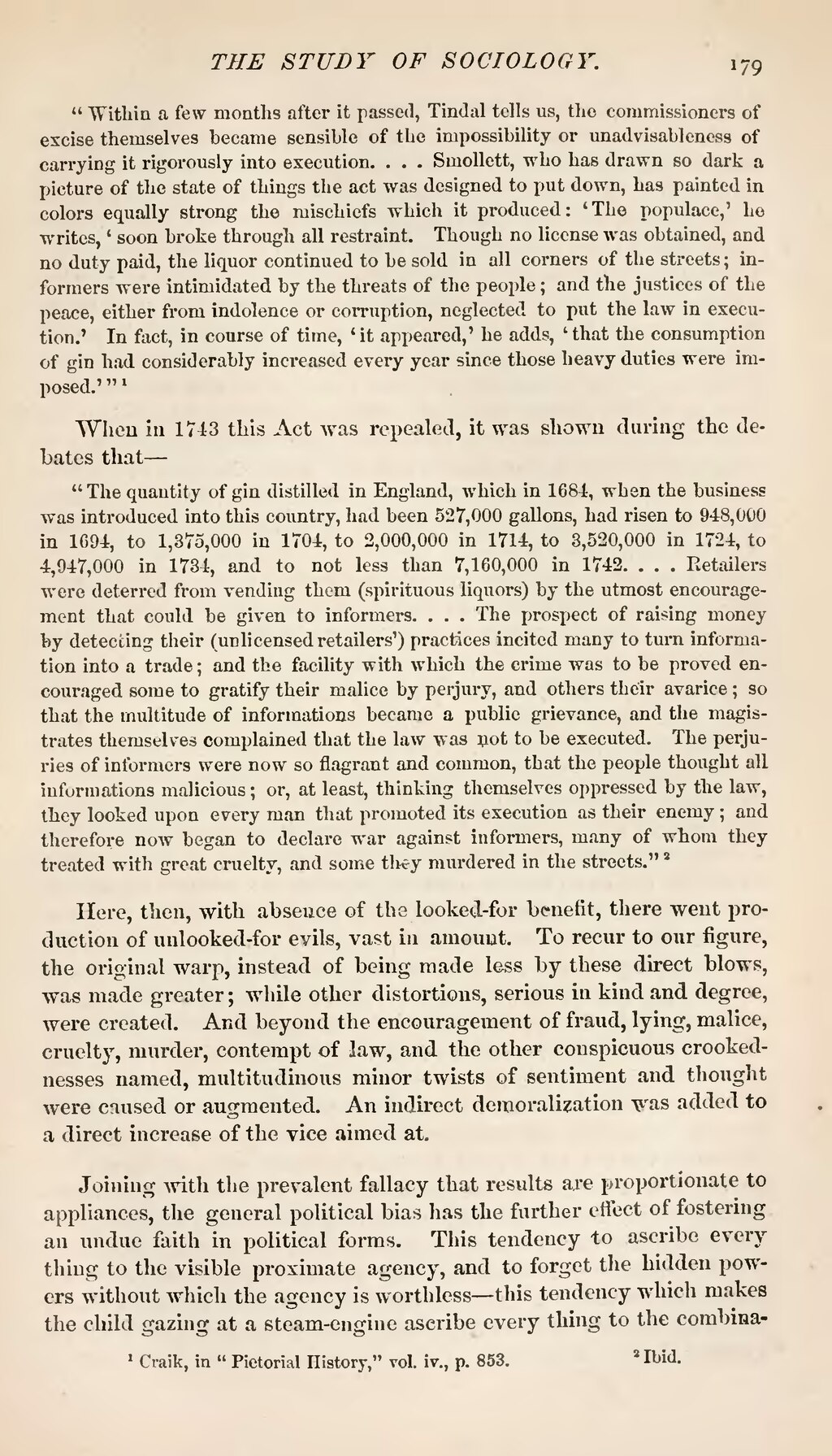"Within a few months after it passed, Tindal tells us, the commissioners of excise themselves became sensible of the impossibility or unadvisableness of carrying it rigorously into execution. . . . Smollett, who has drawn so dark a picture of the state of things the act was designed to put down, has painted in colors equally strong the mischiefs which it produced: 'The populace,' he writes, 'soon broke through all restraint. Though no license was obtained, and no duty paid, the liquor continued to be sold in all corners of the streets; informers were intimidated by the threats of the people; and the justices of the peace, either from indolence or corruption, neglected to put the law in execution.' In fact, in course of time, 'it appeared,' he adds, 'that the consumption of gin had considerably increased every year since those heavy duties were imposed.'"[1]
When in 1743 this Act was repealed, it was shown during the debates that—
"The quantity of gin distilled in England, which in 1684, when the business was introduced into this country, had been 527,000 gallons, had risen to 948,000 in 1694, to 1,375,000 in 1704, to 2,000,000 in 1714, to 3,520,000 in 1724, to 4,947,000 in 1734, and to not less than 7,160,000 in 1742. . . . Retailers were deterred from vending them (spirituous liquors) by the utmost encouragement that could be given to informers. . . . The prospect of raising money by detecting their (unlicensed retailers') practices incited many to turn information into a trade; and the facility with which the crime was to be proved encouraged some to gratify their malice by perjury, and others their avarice; so that the multitude of informations became a public grievance, and the magistrates themselves complained that the law was not to be executed. The perjuries of informers were now so flagrant and common, that the people thought all informations malicious; or, at least, thinking themselves oppressed by the law, they looked upon every man that promoted its execution as their enemy; and therefore now began to declare war against informers, many of whom they treated with great cruelty, and some they murdered in the streets."[2]
Here, then, with absence of the looked-for benefit, there went production of unlooked-for evils, vast in amount. To recur to our figure, the original warp, instead of being made less by these direct blows, was made greater; while other distortions, serious in kind and degree, were created. And beyond the encouragement of fraud, lying, malice, cruelty, murder, contempt of law, and the other conspicuous crookednesses named, multitudinous minor twists of sentiment and thought were caused or augmented. An indirect demoralization was added to a direct increase of the vice aimed at.
Joining with the prevalent fallacy that results are proportionate to appliances, the general political bias has the further effect of fostering an undue faith in political forms. This tendency to ascribe every thing to the visible proximate agency, and to forget the hidden powers without which the agency is worthless—this tendency which makes the child gazing at a steam-engine ascribe every thing to the combina-

